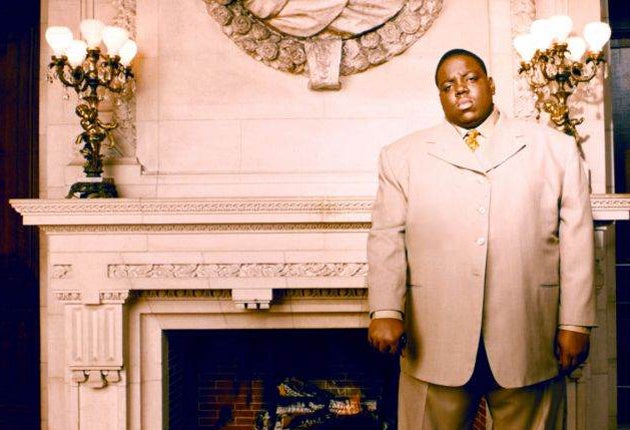FBI releases 'secret' reports on hip-hop's Notorious murder case
Agency investigated links between killings of rappers Biggie Smalls and Tupac Shakur

Your support helps us to tell the story
From reproductive rights to climate change to Big Tech, The Independent is on the ground when the story is developing. Whether it's investigating the financials of Elon Musk's pro-Trump PAC or producing our latest documentary, 'The A Word', which shines a light on the American women fighting for reproductive rights, we know how important it is to parse out the facts from the messaging.
At such a critical moment in US history, we need reporters on the ground. Your donation allows us to keep sending journalists to speak to both sides of the story.
The Independent is trusted by Americans across the entire political spectrum. And unlike many other quality news outlets, we choose not to lock Americans out of our reporting and analysis with paywalls. We believe quality journalism should be available to everyone, paid for by those who can afford it.
Your support makes all the difference.Even at the time it seemed like a conspiracy theory of the highest order, but a trove of documents released by the FBI yesterday shows that the agency took seriously the suggested link between the 1990s murders of two of hip hop's biggest stars
Posted on an FBI website in response to a Freedom of Information request, the papers show that the agency was engaged at the outset of its investigation in searching for links between the death in the 1997 of Brooklyn's Notorious B.I.G, also known as Biggie Smalls, whose real name was Christopher Wallace, and the murder just a few months earlier in Las Vegas of another hip hop star, Tupac Shakur. Almost a decade and a half later neither the Los Angeles murder of Wallace or of Shakur has been solved and the twin mysteries of their violent deaths continue to grip the hip-hop scene.
The papers also confirm that the FBI received tip-offs from informants pointing to an officer with the Los Angeles Police Department. They describe what appears to be solid ballistic evidence linking the killing to the officer, whose name, like many other identifying details, was redacted from the documents before their posting.
Even if the FBI long ago closed its investigation leaving the case cold, the new information will again shift the spotlight on the LAPD officer. Other passages in the documents, when cross-referenced with information already in the public domain, make clear he is David Mack, who soon after the Wallace slaying was convicted and sent to prison for a bank heist. He was unsuccessfully targeted in a wrongful death civil suit by the Wallace estate in 2007.
The documents, 400 pages of typed reports, subpoenas, surveillance logs and emails, do not appear to offer any entirely new information. But they do add fresh details and context, including confirmation that the bullets used to kill Wallace were extremely rare metal-piercing bullets manufactured in Germany and only available from two US suppliers, in California and in New Jersey.
The FBI also followed leads suggesting that Wallace may have been killed in retaliation for the slaying of Shakur, or that his murder was inspired by a bitter rivalry between the East and West Coast rapper camps or even between the two main record labels on each side of the country, Death Row Records in Los Angeles founded by Marion "Suge" Knight and P. Diddy's New York-based Bad Boy Entertainment.
Wallace had just left a music industry event at a Los Angeles museum in March 1997 and had settled in the back seat of a car waiting outside when someone in a black Chevrolet Impala drew up alongside and opened fire, the documents say. The rapper was declared dead at the scene.
Mack has always denied any involvement in the Wallace case as have both Knight and P. Diddy. Yet the documents serve as a reminder of the many leads that at least appeared to cast his protestations in doubt. Bullets of the same kind used in the slaying – Gecko 9mm – were found his home. He had known ties to Marion Knight and had a shrine to Tupac Shakur in his home. He also owned a black Chevrolet Impala.
The FBI said there was nothing significant about the timing of the release of the documents and the LAPD confirmed that for now it has no new leads. "We have followed up on all of the leads we have at this time to the best of our ability," noted Captain Kevin McClure. "If anything new comes along we will certainly look at it."
Join our commenting forum
Join thought-provoking conversations, follow other Independent readers and see their replies
Comments